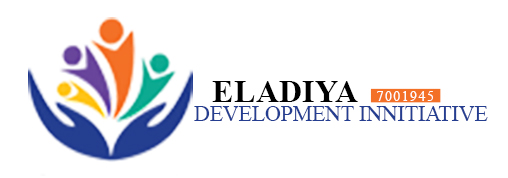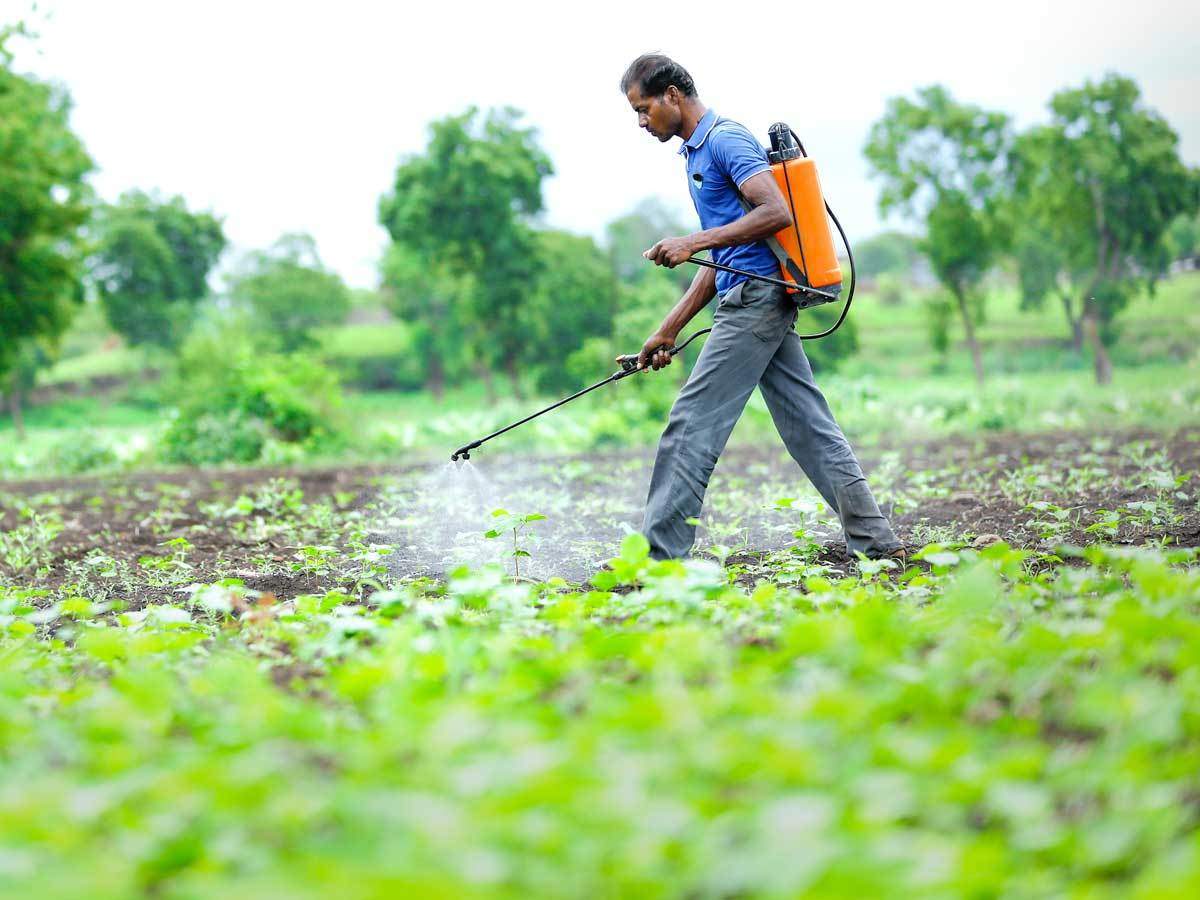NGO laments alarming use of hazardous pesticides in Nigeria
Sustainable Research and Action for Environmental Development (SRADev Nigeria), has lamented indiscriminate use and over-reliance on pesticides in Nigeria, pointing out that this has grave consequences food safety, consumers’ health, agriculture workers, and the entire biodiversity.
SRADev Nigeria, which focal point for Nigeria is on Hazardous chemicals and waste clutter, notes that the strategic approach to international chemicals management (SAICM), in 2015, a resolution that recognised Highly Hazardous Pesticides (HHPs), as a concern, had called for concerted action to address HHPs, with emphasis on promoting ago-ecologically based alternatives and strengthening national capacity to conduct risk assessment /management.
Making these disclosures at a press conference to unveil new findings on HHPs by SRADev Nigeria in Lagos weekend, its Executive Director, Mr Leslie Adogame, said “I am pleased to welcome you all to this national media event to formally release to the public our study on National Situation of Highly Hazardous Pesticides (HHPs) in Nigeria, implementedunder the auspices of the Pesticides Action Network, Africa (PAN Africa) with funding from Global GreenGrants Fund (GGF), USA.
“This study is one of our first activity in the project titled: Facilitating Local Action for Sustainable Management of Highly Hazardous Pesticides (HHPs) in Lagos State, Nigeria carried out in six months (March-August 2022). The project goal is essentially to establish the current status of HHPs use towards facilitating a local concerted action for sustainable management and the promotion of safer alternatives in Nigeria.
“Highly Hazardous Pesticides (HHPs) are pesticides acknowledged to present particularly high levels of acute or chronic hazards to health and/or the environment according to internationally accepted classification systems such as the World Health Organization (WHO) or the Global Harmonized System of Classification and Labelling of Chemicals (GHS) or their listing in relevant binding International Agreements and Conventions.
“In addition, they are known to cause severe or irreversible harm to health or the environment under conditions of use in a country that may be considered to be and treated as highly hazardous.
“According to a new Pesticides Atlas, pesticide use globally has soared by 80% since 1990, with the world market set to hit $130bn next year. But pesticides are also responsible for an estimated 11,000 human fatalities and the poisoning of 385 million people every year. The global market for pesticides is highly lucrative. A few well-connected and influential agrochemical companies are expanding their control over the market and thriving for always increasing profits.
“At the forefront: European companies like Bayer and BASF. The EU is the largest pesticide export market in the world, now investing more and more in countries of the Global South like Nigeria, where EU companies are allowed to export pesticides banned on their own due to their harmful effects on human health and the environment.
“It is now generally known that HHPs are dangerous for human health, animals and the environment. They can lead to serious or irreversible harms, including cancer, hormonal disorders, fertility and fetal harm, and environmental damage to the ozone layer, animal species, water, soil and biodiversity.
“A 2021 field survey across selected states in Nigeria shows about 40% of the registered pesticides in Nigeria have been withdrawn from the European market, largely due to persistent toxicity. Distribution and use of Pesticides has been considered as an important element of the Strategic Approach to International Chemicals Management (SAICM) process by the Council of FAO in 2006. In 2015, a resolution recognized HHPs as a concern.
“In Nigeria today, the effective management of HHPs is not in place primarily because of the gap and disconnect between various policy framework like the 2016 Agriculture promotion policy and National Implementation Plan (NIPs) of Stockholm Convention on POPs, but also largely due to many other factors we shall mention later”.
On health and environmental dangers of HHPs, Adogame noted that the health and environmental dangers of HHPs include that pesticides exposure has both human and environmental health consequences ranging from mild skin irritations, birth defects, tumors, mutation, nervous disorder, endocrine disruption coma or death, disruption of ecosystem of environmental media including beneficial soil microorganisms and insects, non-target plants, fish, birds, and other wildlife. According to him, “Continuous use of pesticides affects soil water and nutrient retention capacity thereby raising the economic cost of farming. In Nigeria, episodes of pesticides’ poisoning and ecotoxicity in communities have largely been documented in various literatures as well as in this project report.
“The occurrence of pesticides in our environment as a result of the indiscriminate or intentional use has resulted in its persistence in the environment, thereby affecting the ecosystems and non-target organisms. Acute and chronic pesticide poisoning usually results from: intentional suicidal consumption of the pesticide, consumption of contaminated food, chemical accident in industries and occupational exposure in agriculture. About 15,000 metric tons of pesticides comprising about 135 pesticide chemicals are imported annually into the country.
“They are the major causes of cancer, cardiovascular diseases, dermatitis, birth defects, morbidity, impaired immune function, neurobehavioral disorder and allergy sensitization reaction”.
SRADev boss who stated that the challenge of HHP management in Nigeria is enormous, said “Our study has in addition identified some challenges in this sector which include lack of awareness, high labour demand, difficulties in use of commercial organic fertilizer, lack of research /institutional support, low level of organic certification, high input costs, and inadequate supporting infrastructure.
“To further buttress our position above, SRADeV Nigeria undertook a study between to understand the current National Situation of Highly Hazardous Pesticides (HHPs) use in Nigeria. The study’s main aim is to establish the current status of HHPs use towards facilitating a local concerted action for sustainable management and the promotion of safer alternatives in Nigeria.
“The project study involved an assessment of the national inventory of HHPs importation and their distribution in the country (using relevant government data) as well as identified HHPs registered and being used in Nigeria and banned in another using the most updated Pesticide Action Network (PAN) HHPs criteria and PAN consolidated list of bans (Joint FAO/WHO meeting on Pesticide Management and/or other criteria agreed by the PAN).
“The study approach entailed extensive consultation with relevant government agencies, country data review and desktop literature review with the following crucial findings which include the fact that the national consumption of pesticides is increasing, even though the health and ecological consequences have long been known.
“As mentioned earlier, this is partly because four corporations from the Global North that control 70 percent of the global pesticide market, are EXPANDING THEIR BUSINESS to the Global South where pesticides are less strictly regulated. Therefore countries like Nigeria are increasingly at the receiving end. Albeit, national goals of biodiversity conservation can only be achieved if the use of pesticides is significantly reduced.
“From our project study, we have specifically found that Glyphosate, Paraquat Dichloride, Dichlorvos (DDVP otherwise called Otapiapia), Chlorpyrifos that are categorised as dangerous HHPs and banned in many countries are found still highly imported into Nigeria and registered for use in Agriculture.
“Between 2015-2019, about eight hundred and twenty-two (822) pesticides were registered in Nigeria by NAFDAC of which five hundred and fifteen (515) about 63% are classified as HHPs. China had the largest share of 50% (244) in the origin of HHPs followed by India (128).
“Between 2020 and 2021, Glyphosate, a kind of organophosphorus compound, holds the highest share of all imported HHPs (Glyphosate accounts for a 67.4% and 53.4% of HHP imports in kilograms and litres respectively). Data obtained confirms that the majority of imported and/or registered pesticides in Nigeria are highly hazardous. Glyphosate was enlisted into the PAN list of HHP since 2014. However, it is being approved in the EU used as an active substance in Plant Protection Products until 15th December, 2022.
“HHPs that are not permitted in Europe for ecological or health reasons HEA are still produced and exported to Nigeria. It was found that many European companies are also involved in the export business. This is an issue of double-standard by European Union.
“The study also noted that composition and active ingredients of some pesticides imported into Nigeria were not stated in the import data provided or explicitly documented. These could include HHPs, chemical based non HHPs as well as biopesticides. This practice could pose a distortion to audit trail and record-keeping of imported pesticides, which has serious public and environmental health implications on the economy.
Between 2020 and 2021, the cost of the HHPs imported into Nigeria amounted to over ₦75billion. Imports from China and India alone accounted for over 97% of the cost of HHP imports.
“Whereas, alternatives (such as agroecology, organic farming) to HHPs use in Agriculture is currently well advanced in many African countries, but less emphasized or promoted in Nigeria because the existing and enabling policy frameworks (National Policy on Environment of 1991 and revised in 1999, “The Agriculture Promotion Policy (APP) of 2016; Nigeria Zero Hunger Strategic Review of 2017, Agricultural Policy for Nigeria of 2018, Agriculture Sector Food Security and Nutrition Strategy – 2015-2025), are insufficient and not specific enough to support the growth of organic or ecological farming in Nigeria.
“Nigeria has no comprehensive policies in place to fund, implement or promote research as well as the practice into organic farming, agroecology or any other sustainable agricultural strategy. Regulations remain out of step with standards in leading export markets such as the EU, enforcement of existing regulation is poor and alternatives to high pesticide use are unexplored.
“Finally, standards and certification of organic food products are not in place to encourage export and competitiveness in the growing international market. The need for Organic Agriculture Standard is imperative.
” To address the problem of HHPs use and its poisoning, SRADev Nigeria proposes that Nigerian government (NAFDAC) to officially review or update pesticides/HHPs allowed into the country and publicly release the list of restricted/banned HHPs in Nigeria accordingly. NESREA should immediately gazette/roll-out the ‘Hazardous Pesticides Chemicals Regulation’ finalised by stakeholders two years ago. These processes have been too long delayed due to unnecessary human factors and bureaucratic bottleneck.
“The Federal Ministry of Agriculture should immediately finalised the ‘National Organic Agriculture Policy For Nigeria’ which has been formulated since 2019. The recent pronouncement by the African Union in the development of organic agriculture in the continent, should be implemented on national and local level.
Nigeria Government should facilitate the access to certification services. There is no government approved certifying body yet to standardize products and ensure compliance with Organic Production system. Awareness or advocacy on organic agriculture must be raised to de-emphasise Conventional Agricultural practices. Organic agriculture should be inculcated into the educational curriculum. Specialised institutions involved in training for organic agriculture should be financially supported”.


